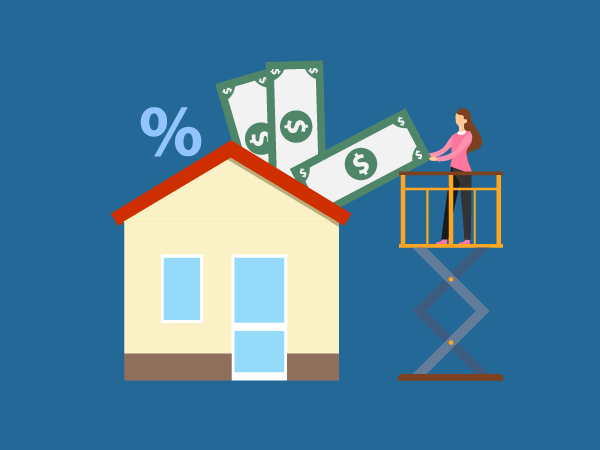June usually marks the height of the spring real estate market—it's National Homeownership Month, after all. But this June hasn't been typical. With job loss numbers in the tens of millions, the economic impact of the coronavirus pandemic has put home ownership at risk, with many struggling to make mortgage or rent payments.
There is one unexpected bright spot, though: Interest rates have dipped to historic lows. And, if you're in a position to take advantage of opportunities to buy a home or refinance a mortgage at an irresistible rate, you may be wondering whether you should.
To Buy or Not to Buy?
It depends. There are pros and cons to buying now, and it really hinges on your specific situation. Here are a few things to consider:
Time, and numbers, are on your side. If you're a first-time buyer or an investor looking to seize the day, you probably don't need to rush. Although most of the job losses seem to be behind us and consumer confidence appears to have bottomed out, rates likely will remain low for some time. And, though home values are showing more resiliency than they did in 2008, prices may decrease a bit more, getting you a little more for your money.
Supply, and available credit, are not. Even if you're willing to brave a fluctuating market, overall inventory is relatively low and there's little to choose from. Not surprisingly, many sellers are reluctant to list properties during the pandemic and are holding out for more favorable economic conditions. If you're having trouble finding what you want and are unwilling to wait, don't rule out working with a developer. Many need cash flow right now, so it could be your chance to make a deal.
Keep in mind the mortgage market hasn't been immune to the impact of the pandemic, with liquidity dipping along with rates. May saw a tightening of lending standards, according to a recent Mortgage Credit Availability Index report issued by the Mortgage Bankers Association. Cautious lenders are changing underwriting guidelines, so you may expect more stringent credit score and down payment requirements—and your credit will factor into whether you get the best available rate. First-time buyers, in particular, may need to look at various financing options, such as conventional loans with private mortgage insurance or FHA loans, if they have a lower credit score or want to put less down.
Is Refinancing the Right Move?
Historically low interest rates are causing a flurry of activity for existing homeowners, too, and with good reason. Refinancing offers possibilities like reducing your monthly payment, switching from an adjustable to a fixed rate, shortening the life of your loan, or even cashing out a portion of your equity to use toward paying for college, home improvements, or other outstanding debt. Although it may seem like a no-brainer, it's not always the right move—and you could find yourself with less money in the bank instead of more.
Think long term. The traditional rule of thumb was to refinance if you could lower your current mortgage rate by at least 2 percent. Not anymore. If you can lower your rate by 1 percent or more, you may see significant savings. How much, though, may depend on how far along you are in paying your current loan. For example, if you're 3 years in and want to shorten your loan from 30 to 15 years, you can save on interest, even if you end up with the same or slighter higher monthly payment, but over much less time. If you're 10 years into a 30-year loan, however, and want to lower your monthly payment by refinancing for another 30-year term at a lower rate, you may end up paying more in interest over 40 years.
Shop around and do the math. Although refinancing can often save money over the life of your mortgage loan, it can come at a price. In addition to the interest rate, pay attention to things such as closing costs, up-front fees (e.g., appraisal, legal, loan origination, and title search fees), points, and whether the lender will service the full life of your loan. You may find some lenders offer "no points, no closing costs" options at slightly higher interest rates. Finally, consider the costs of the loan against how long you plan to stay in your home. Ideally, you want to break even on your refinancing costs within one year. Be sure to shop lenders and run the numbers with your CERTIFIED FINANCIAL PLANNERTM professional—making meaningful comparisons can help you snag the best possible deal and ensure that savings outweigh costs.
Final Thoughts . . .
Taking advantage of low rates is attractive, but your personal circumstances will dictate whether it's a good time to buy or refinance, especially with lingering uncertainty around the economy. One caveat: If you're an investor looking to become a landlord, plan to have an emergency fund of about three months' salary on reserve (as well as enough funds to cover transactional costs). The economic fallout of the pandemic could affect the ability of residential and commercial tenants to make rental payments.










